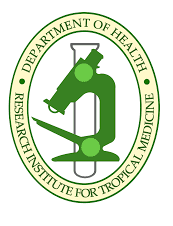
Rotavirus
Diarrhea is the second leading cause of childhood mortality in the Philippines. In response to this significant public health burden, the country introduced the rotavirus vaccine as a demonstration program in selected populations starting in 2012. However, policymakers sought additional evidence to guide their decisions on expanding rotavirus immunization into the routine National Immunization Program.
Between 2014 to 2018, the Institute in collaboration with the Department of Health (DOH), the Research Institute for Tropical Medicine (RITM), the US Centers for Disease Control and Prevention (US CDC), and the WHO Regional Office for the Western Pacific, conducted an effectiveness assessment of the rotavirus vaccine at the D.O. Plaza Memorial Hospital, focusing on hospitalized diarrheal cases. In parallel, an impact assessment was initiated in May 2015 in the Rural Health Units of Agusan del Sur, comparing outpatient consultations and overall hospitalization before and after the vaccine’s introduction. Both studies aimed to provide a solid evidence base for the inclusion of the rotavirus vaccine in the country’s immunization program and for the Western Pacific Region as a whole.
The WHO has classified the rotavirus vaccine as an underutilized vaccine despite its proven efficacy, safety, and impact in many countries. This project generated some of the first evidence globally on the effectiveness of vaccine use in Asia. It also provided the first evidence from a middle-income country in Asia and the Western Pacific Region, where many countries are still deciding on whether to introduce the vaccine in their national immunization programs. Moreover, findings from this study have been used by the DOH to shape health and immunization policies in the Philippines.
-
Prospects for rotavirus vaccine introduction in the Philippines: Bridging the available evidence intro immunization policy. https://doi.org/10.1080/21645515.2018.1551673
Effectiveness of monovalent rotavirus vaccine in the Philippines. https://doi.org/10.1038/s41598-018-32595-9
Impact of rotavirus vaccine on diarrheal hospitalization and outpatient consultations in the Philippines: First evidence from a middle-income Asian country. https://doi.org/10.1016/j.vaccine.2018.04.058
Improving rotavirus vaccine coverage: Can newer-generation and locally produced vaccines help? https://doi.org/10.1080/21645515.2017.1403705





